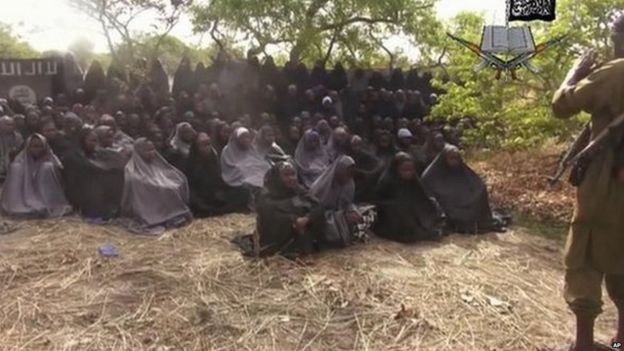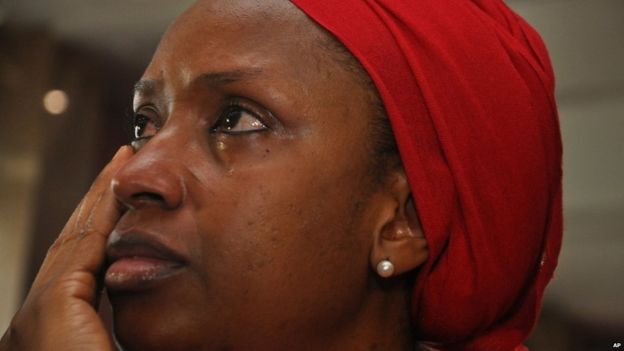Nigeria's Buhari meets Chibok girls campaigners
By BBC News
Nigeria's President Muhammadu Buhari has for the first time met those campaigning for the release of more than 200 girls abducted by Islamist Boko Haram militants last year.
His predecessor, Goodluck Jonathan, declined to meet the Bring Back Our Girls activists.Mr Buhari promised them that troops for a regional force to fight the militants would be in place by the end of July.
The kidnap of the girls from a school in Chibok sparked global outrage.
The mass abduction sparked one of the biggest social media campaigns of 2014, with the Twitter hashtag #BringBackOurGirls being used more than five million times.
Boko Haram has stepped up attacks since Mr Buhari took office in May vowing to tackle the insurgency "head on".

The Nigerian military has said it has arrested "the mastermind" behind two recent attacks on the northern towns of Jos and Zaria in which almost 70 people were killed.
'How the mighty have fallen'
Addressing members of the Bring Back Our Girls campaign group and the media, the president said that the government was doing all it could to tackle insecurity, but did not refer directly to the 219 Chibok girls abducted in April 2014.Earlier, the activists had marched through the capital, Abuja, on their way meet Mr Buhari at his official residence.


"The rescue of the Chibok girls would be the strongest statement this government could make for having respect for the sanctity and dignity of every Nigerian life," said Oby Ezekwesili.
In his speech, Mr Buhari spoke of the "paradox" of Nigeria asking its neighbours for help, despite itself providing help to so many other countries in the past.
"How the mighty have fallen," he said.
Nigeria, Chad, Cameroon, Niger and Benin are all expected to provide troops for the 7,500-strong regional task force to tackle Boko Haram.
The force will be led by Nigeria but have its headquarters in the Chadian capital, N'Djamena.
This year, Chad, Cameroon and Niger have been helping Nigeria recapture territory from the insurgents.
Some of those who were kidnapped have been forced to join the militant group, the BBC was told last week.
Amnesty International estimates that at least 2,000 women and girls have been abducted by Boko Haram since the start of 2014.


0 Comments:
Post a Comment
Subscribe to Post Comments [Atom]
<< Home